 TOKYO - A powerful 7.2-magnitude earthquake rocked a rural area of northern Japan on Saturday, killing at least three people, triggering landslides and reportedly knocking down a bridge, fire and disaster management officials said.Kyodo News agency said at least 100 people were injured. Officials confirmed 69 injuries and seven people missing. Another 100 people were trapped at a hot springs, according to the government's Disaster Agency, but details of their situation remained unclear.Two nuclear power plants in the area were undergoing inspections but there were no immediate reports of damage, said Chief Cabinet Secretary Nobutaka Machimura.Electricity had been cut to about 29,000 households in the quake zone,he said.There was no danger of tsunami.Trade and Industry Ministry official Yoshinori Moriyama later said about 5 gallons of radioactive water splashed from the two pools storing spent fuel at a Fukushima nuclear power plant, but there was no leakage outside the facility.However, electricity had been cut to about 29,000 households in the quake zone.The 8:43 a.m. quake was centered in the northern prefecture (state) of Iwate about 280 miles north of Tokyo. It was located about 5 miles underground — revised from an initially estimated depth of 6.2 miles. It was felt as far away as the capital."It shook so violently that I couldn't stand still. I had to lean on the wall," said Masanori Oikawa, an Oshu city official at home near the epicenter when the quake struck. "When I rushed to the office, cabinets had been thrown onto the floor and things on the desks were scattered all over the place."One of the deaths was a man who ran out of a building in fear and was hit by a passing truck, and the other confirmed death was a man who was buried in a landslide while he was fishing, Machimura said.A third victim was a 48-year-old construction worker who was hit by a falling rock at a dam in Iwate, according to the National Police Agency.Fire and Disaster Management Agency spokesmen said at least 64 people were injured, including at least two people who in critical condition. One of them was a dam worker in Iwate, who was hit by falling rock. National broadcaster NHK said 67 people were hurt.Norio Sato, a city official in one of the hardest-hit cities, Kurihara, said a landslide swallowed 15 construction workers, leaving three of them still missing, while the remaining managed to climb out on their own. Four people at Komanoyu hot springs were also missing after a separate landslide hit the resort hotel, said another city official, Katsuyuki Sato.Footage shot from media helicopters showed numerous landslides onto rural roads running along knots of mountains separated by long stretches of rice fields. The footage aired on national broadcaster NHK also showed a bridge that had collapsed.National broadcaster NHK said four people were seriously injured while riding on a bus over a bridge when the quake hit.In the town of Natori, three people were seriously injured while riding on a bus over a bridge when the quake hit, the disaster management agency said."We must assess the situation as quickly possible and do utmost in our relief activities," said Machimura.The meteorological agency issued a warning of a second quake, and a 5.6-magnitude aftershock hit the same area, but it was unclear whether the warning preceded the aftershock. Japan is experimenting with an earthquake warning system.
TOKYO - A powerful 7.2-magnitude earthquake rocked a rural area of northern Japan on Saturday, killing at least three people, triggering landslides and reportedly knocking down a bridge, fire and disaster management officials said.Kyodo News agency said at least 100 people were injured. Officials confirmed 69 injuries and seven people missing. Another 100 people were trapped at a hot springs, according to the government's Disaster Agency, but details of their situation remained unclear.Two nuclear power plants in the area were undergoing inspections but there were no immediate reports of damage, said Chief Cabinet Secretary Nobutaka Machimura.Electricity had been cut to about 29,000 households in the quake zone,he said.There was no danger of tsunami.Trade and Industry Ministry official Yoshinori Moriyama later said about 5 gallons of radioactive water splashed from the two pools storing spent fuel at a Fukushima nuclear power plant, but there was no leakage outside the facility.However, electricity had been cut to about 29,000 households in the quake zone.The 8:43 a.m. quake was centered in the northern prefecture (state) of Iwate about 280 miles north of Tokyo. It was located about 5 miles underground — revised from an initially estimated depth of 6.2 miles. It was felt as far away as the capital."It shook so violently that I couldn't stand still. I had to lean on the wall," said Masanori Oikawa, an Oshu city official at home near the epicenter when the quake struck. "When I rushed to the office, cabinets had been thrown onto the floor and things on the desks were scattered all over the place."One of the deaths was a man who ran out of a building in fear and was hit by a passing truck, and the other confirmed death was a man who was buried in a landslide while he was fishing, Machimura said.A third victim was a 48-year-old construction worker who was hit by a falling rock at a dam in Iwate, according to the National Police Agency.Fire and Disaster Management Agency spokesmen said at least 64 people were injured, including at least two people who in critical condition. One of them was a dam worker in Iwate, who was hit by falling rock. National broadcaster NHK said 67 people were hurt.Norio Sato, a city official in one of the hardest-hit cities, Kurihara, said a landslide swallowed 15 construction workers, leaving three of them still missing, while the remaining managed to climb out on their own. Four people at Komanoyu hot springs were also missing after a separate landslide hit the resort hotel, said another city official, Katsuyuki Sato.Footage shot from media helicopters showed numerous landslides onto rural roads running along knots of mountains separated by long stretches of rice fields. The footage aired on national broadcaster NHK also showed a bridge that had collapsed.National broadcaster NHK said four people were seriously injured while riding on a bus over a bridge when the quake hit.In the town of Natori, three people were seriously injured while riding on a bus over a bridge when the quake hit, the disaster management agency said."We must assess the situation as quickly possible and do utmost in our relief activities," said Machimura.The meteorological agency issued a warning of a second quake, and a 5.6-magnitude aftershock hit the same area, but it was unclear whether the warning preceded the aftershock. Japan is experimenting with an earthquake warning system."A few items fell off the shelves, such as cosmetics and pottery tea cups," Minoru Takada, 41, manager of Seven-Eleven in Oshu, in Iwate prefecture, told The Associated Press. "There wasn't any panic."Footage from the closest large city, Sendai, showed the force of the quake shook surveillance cameras for 30 seconds. NHK interviewed an official from Miyagi prefecture, where Sendai is located, who said he saw tiles coming off the roofs of some homes."It was scary. It was difficult to stand up," said Sachiko Sugihara, a convenience store worker in Oshu in a separate interview with NHK. "The TV fell over and the refrigerator shook."Windows broke at a nursery school in the area and NHK said some teachers and children were injured, though it was unclear how seriously.Sendai appeared largely unscathed."So far we have not received any reports of damage or injuries. Everything is normal," Hideki Hara, a police official in Sendai, told the AP. "Phone lines, water and electricity are all working right now."Japan is one of the most earthquake-prone areas in the world. The most recent major quake in Japan killed more than 6,400 people in the city of Kobe in January 1995.Japan is one of the most earthquake-prone areas in the world.Last July, a 6.8-magnitude quake killed 11 people in Niigata, just southwest of Saturday's epicenter, damaging a nuclear reactor and causing radioactive leaks. A major quake hit the southwestern city of Kobe in January 1995, killing more than 6,400 people.
As in the days of Noah...
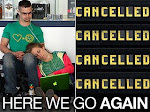
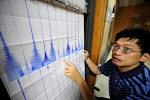
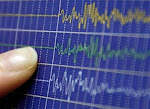
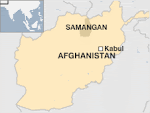







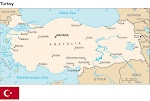
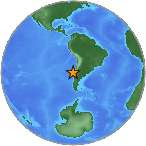




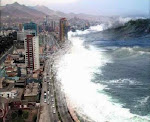

.jpg)

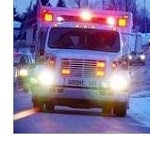
.bmp)
No comments:
Post a Comment